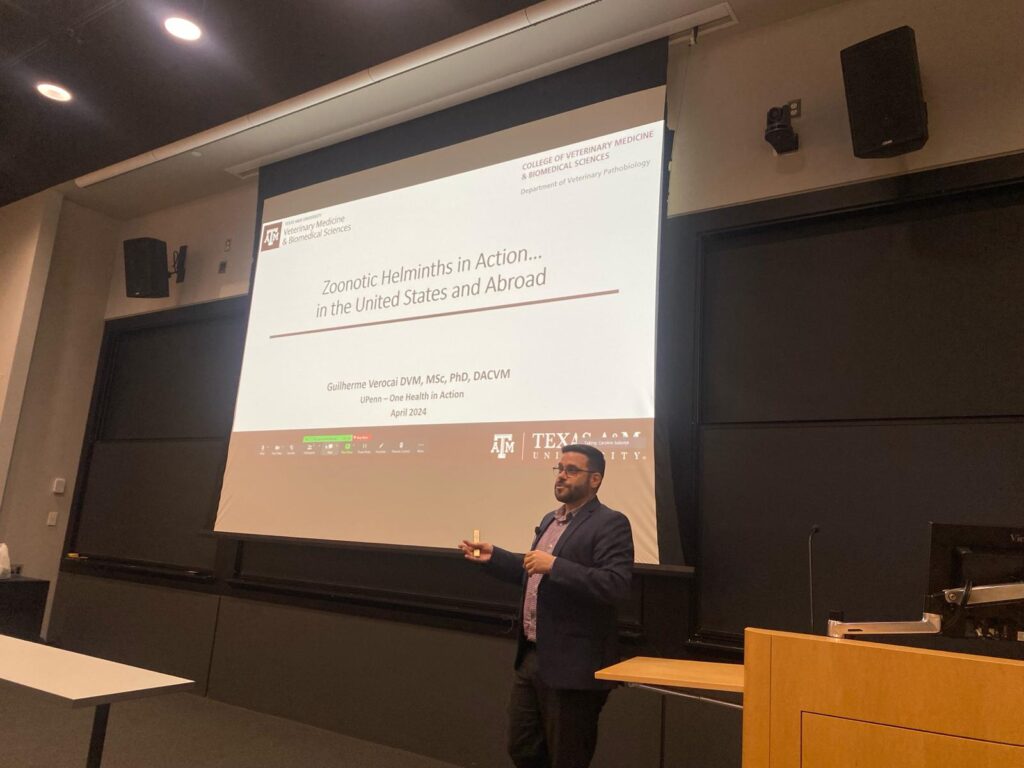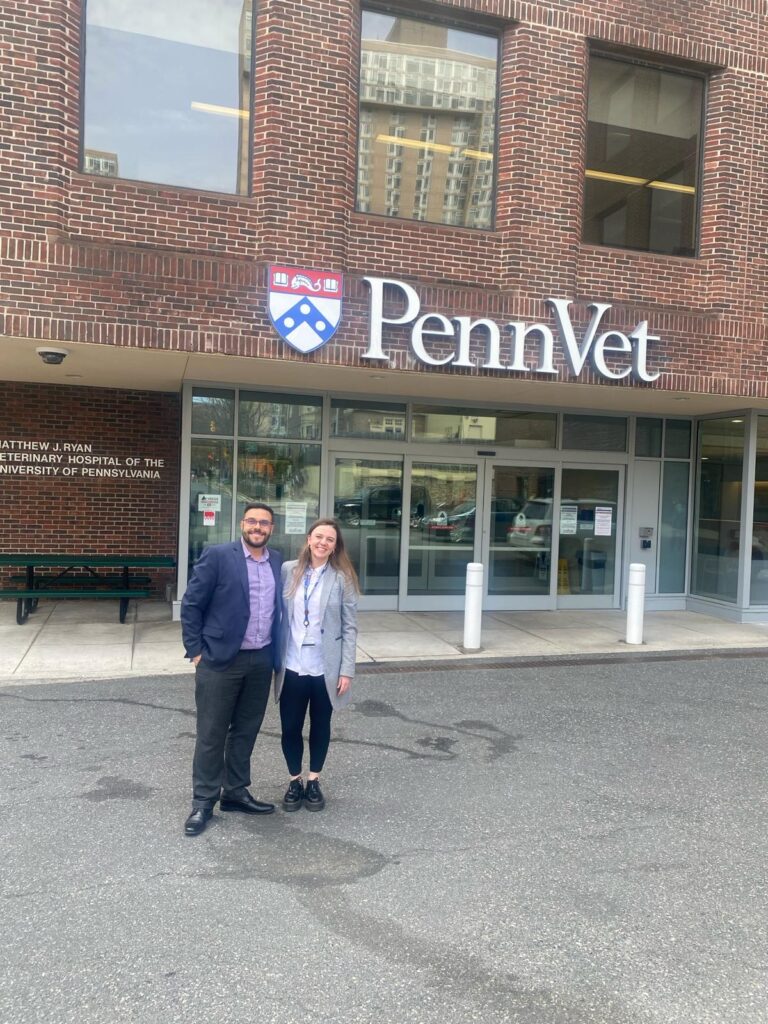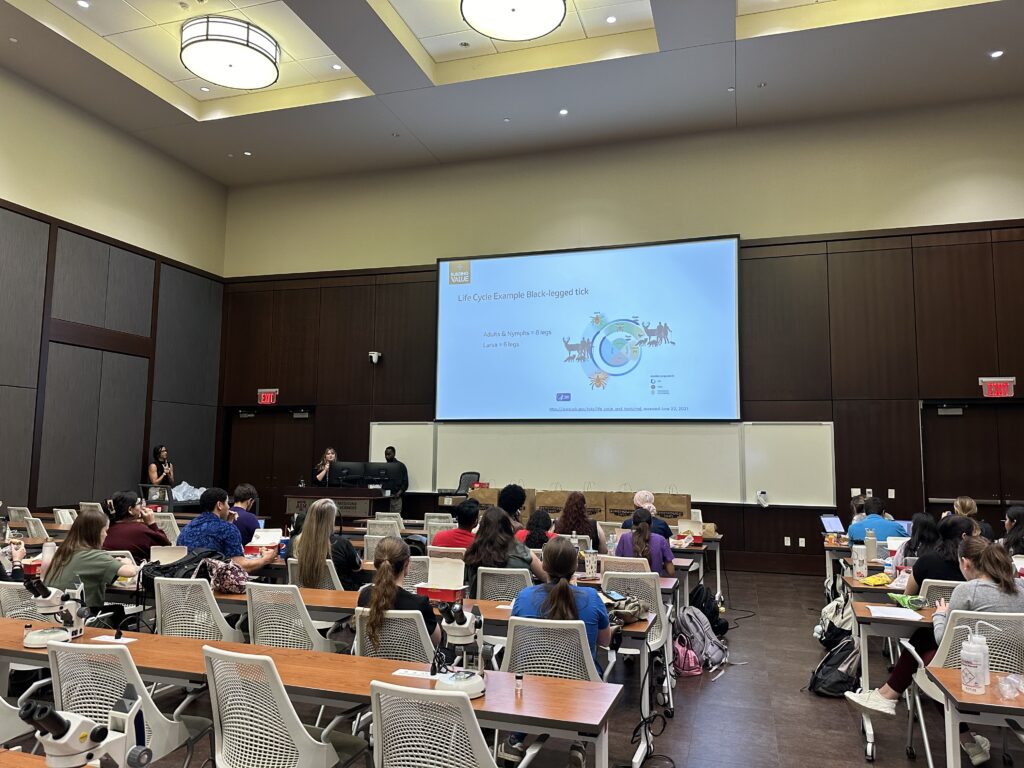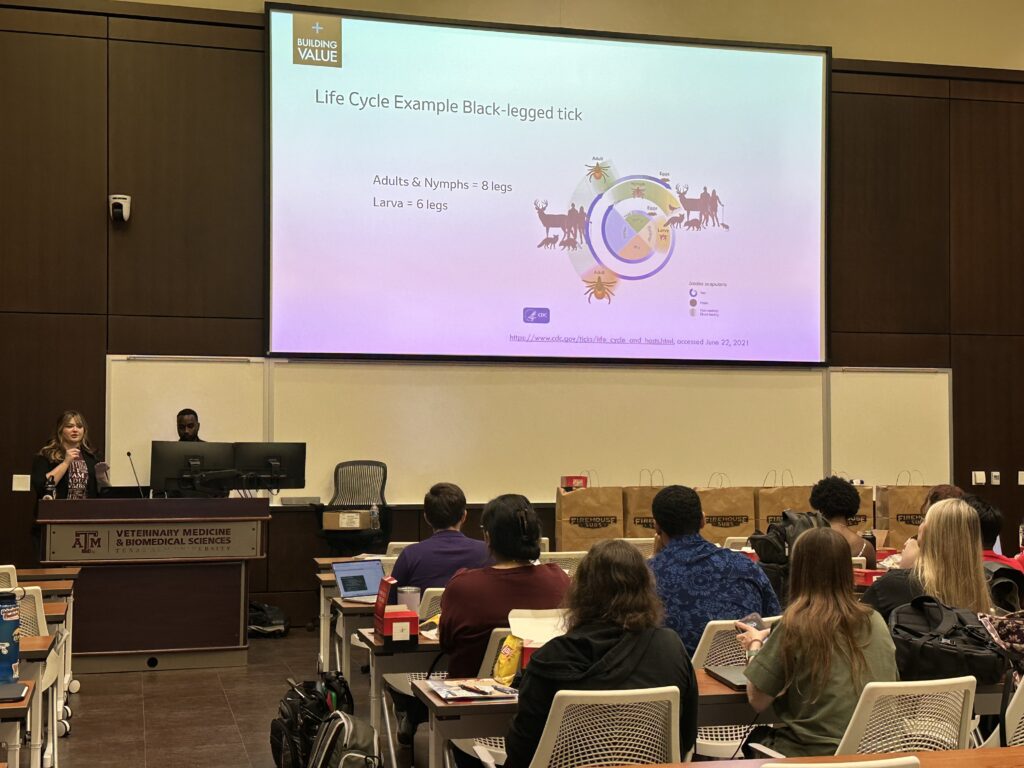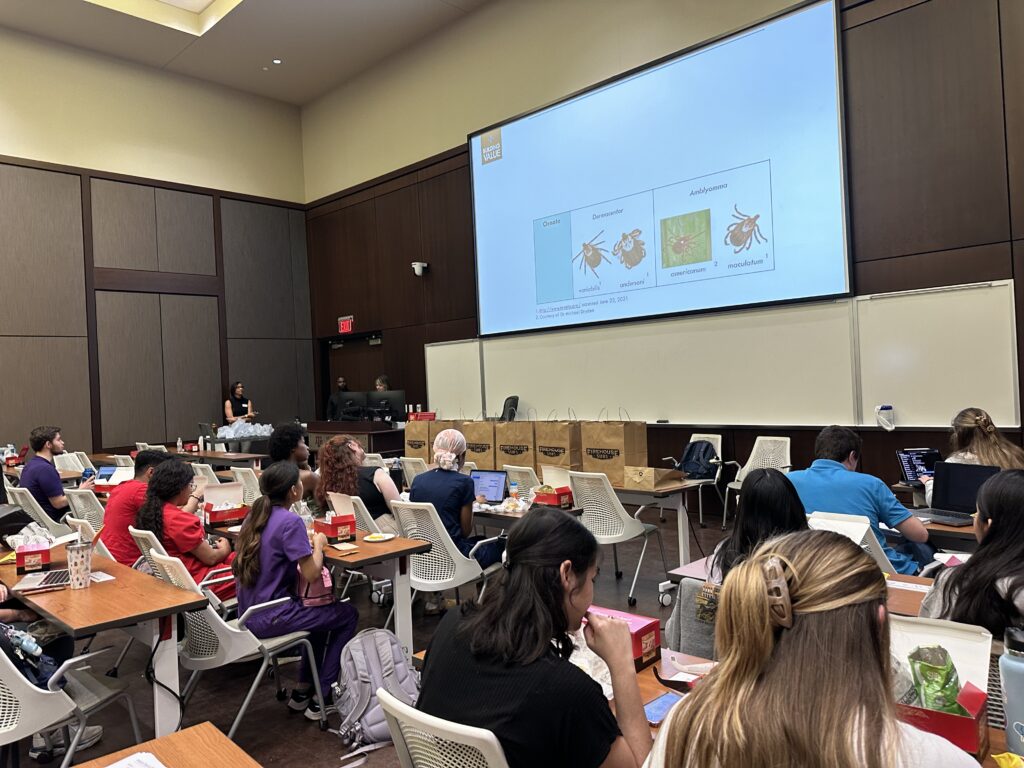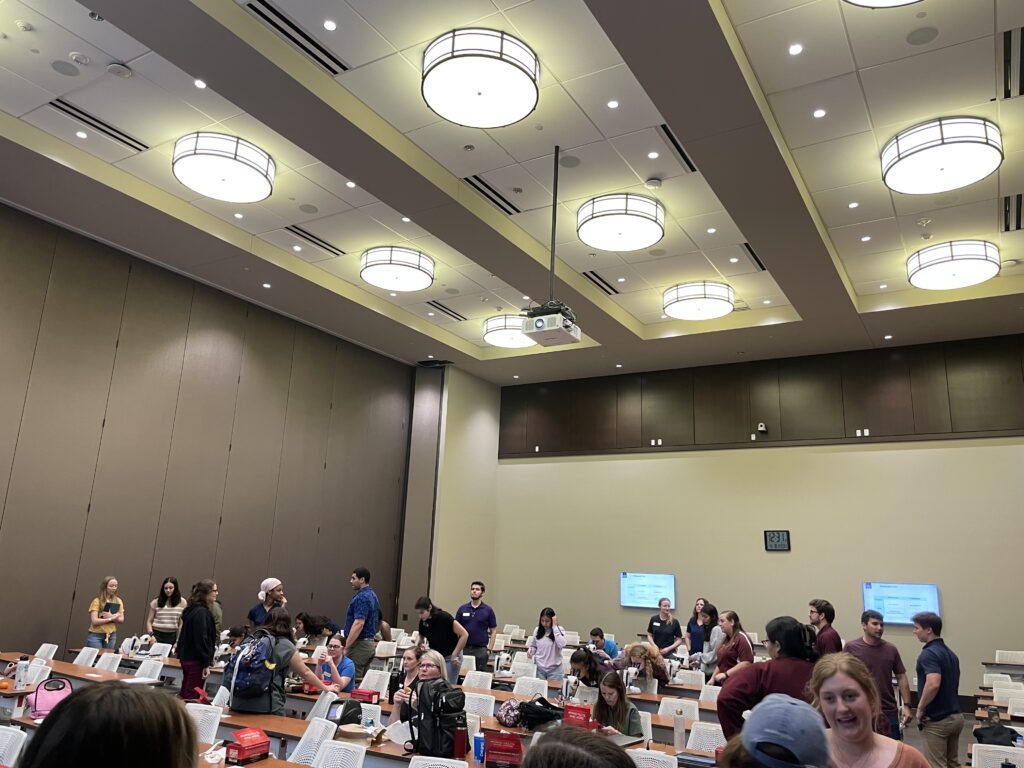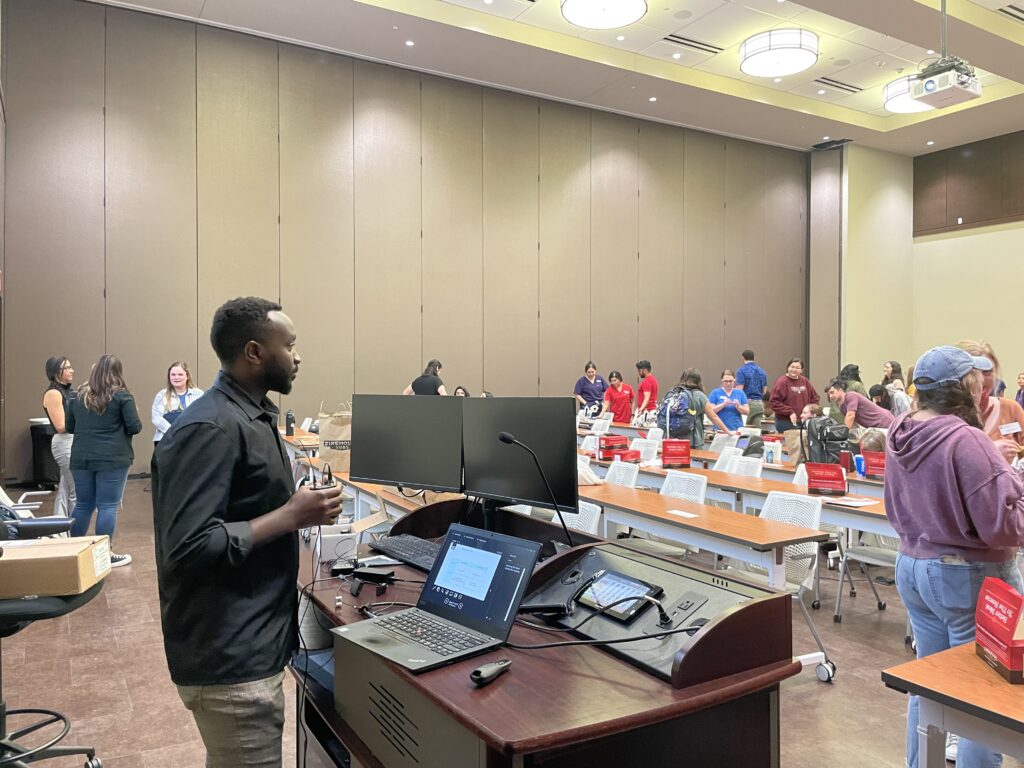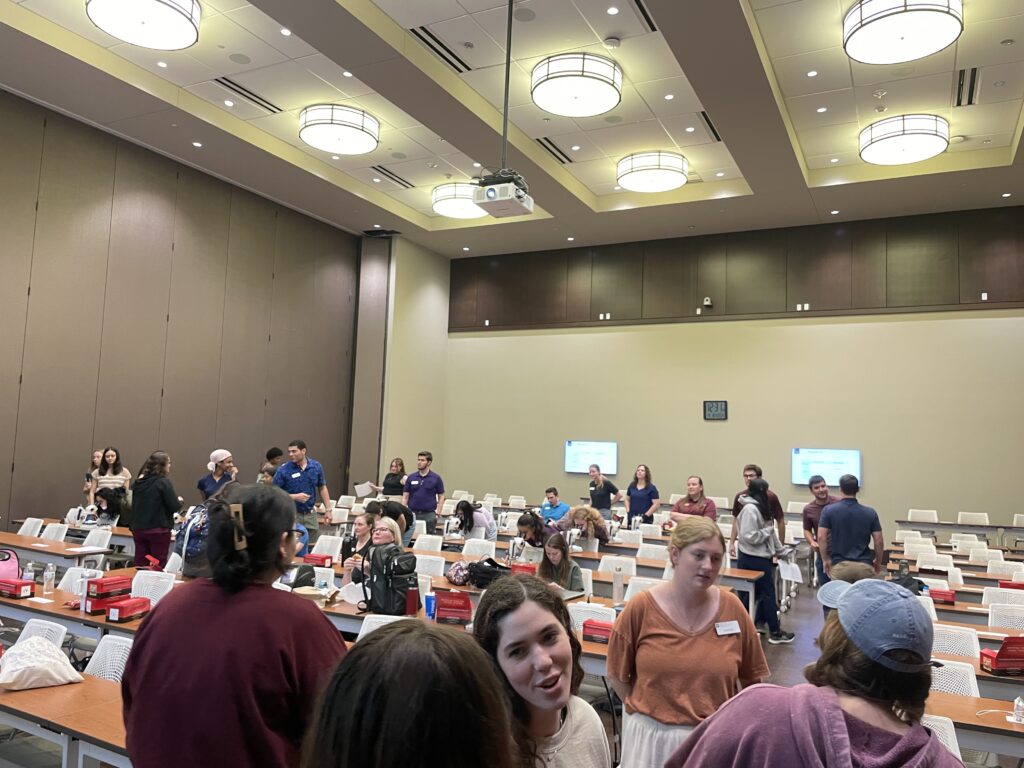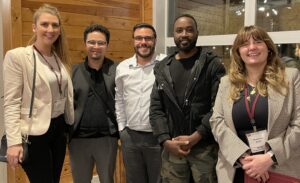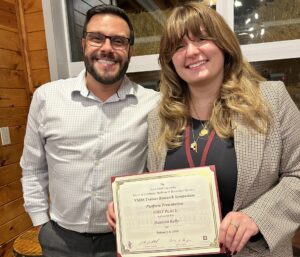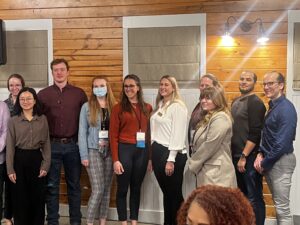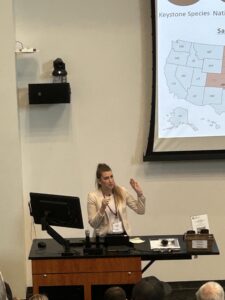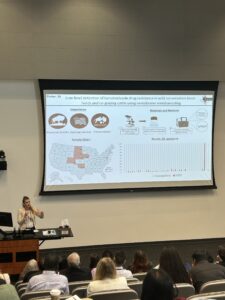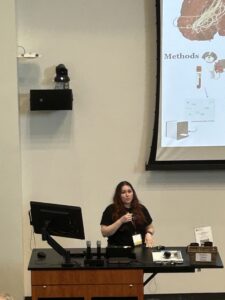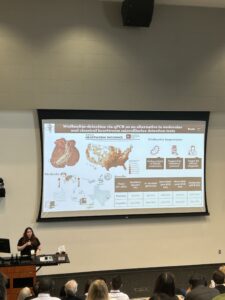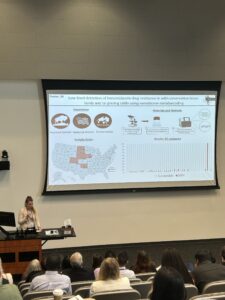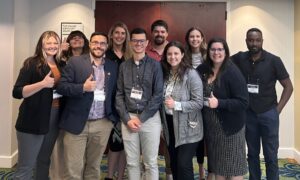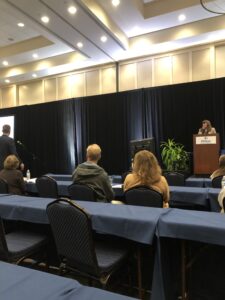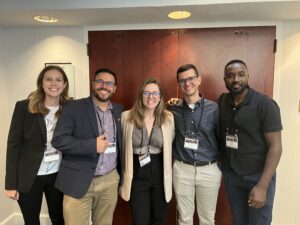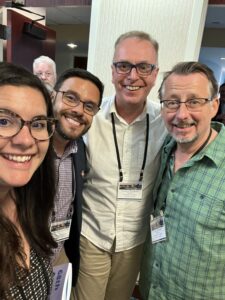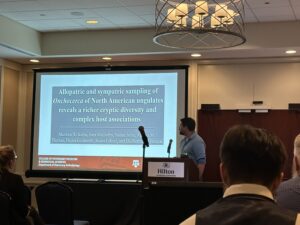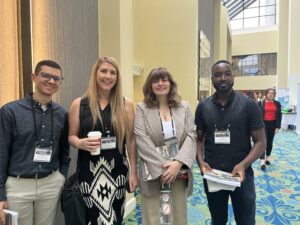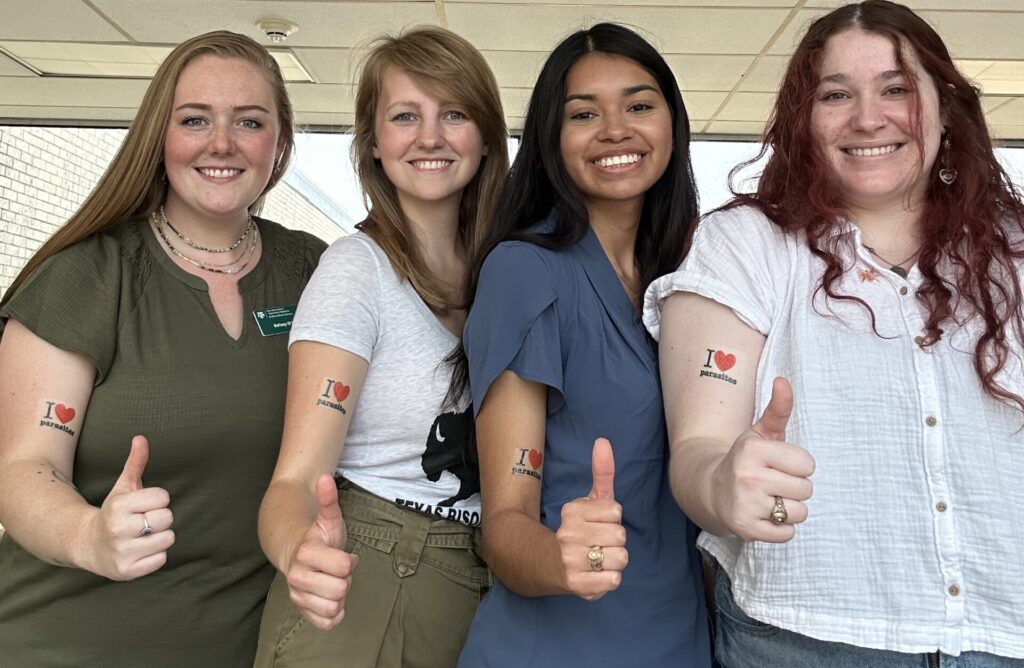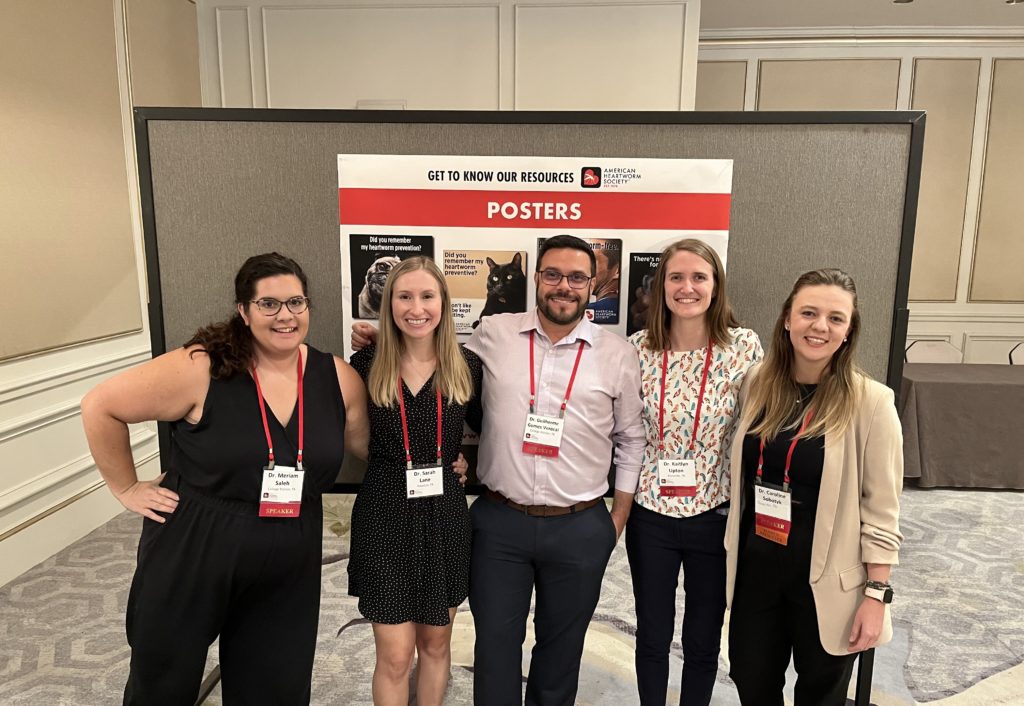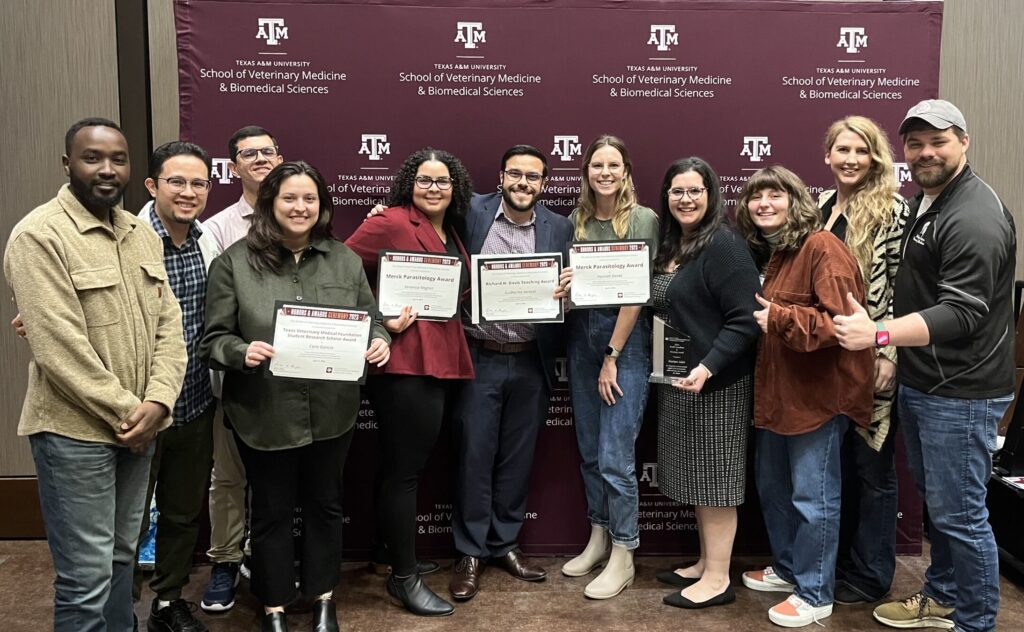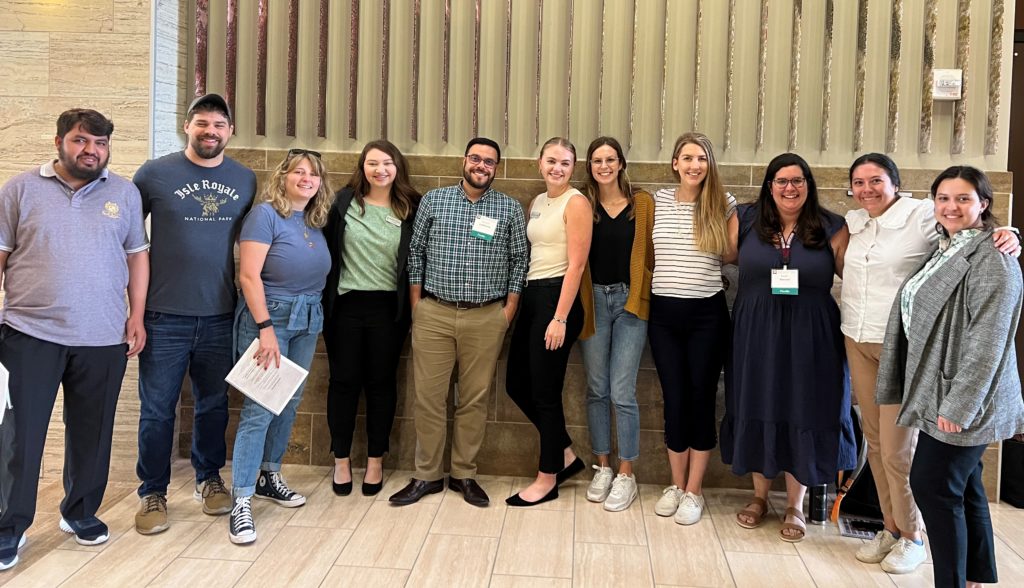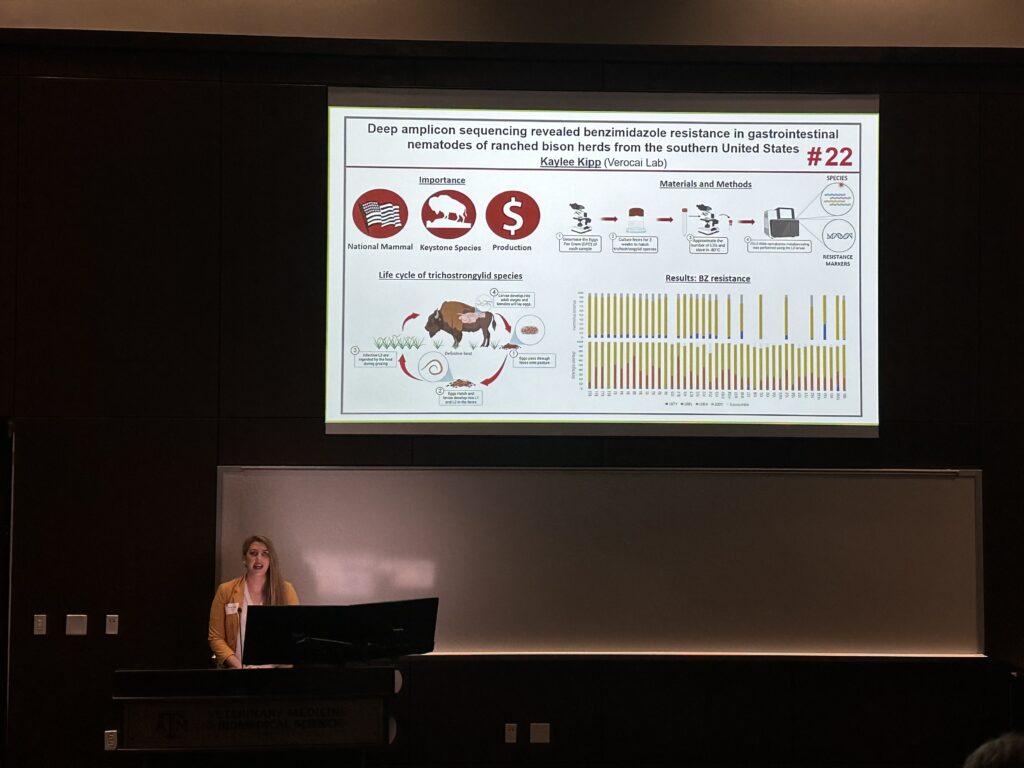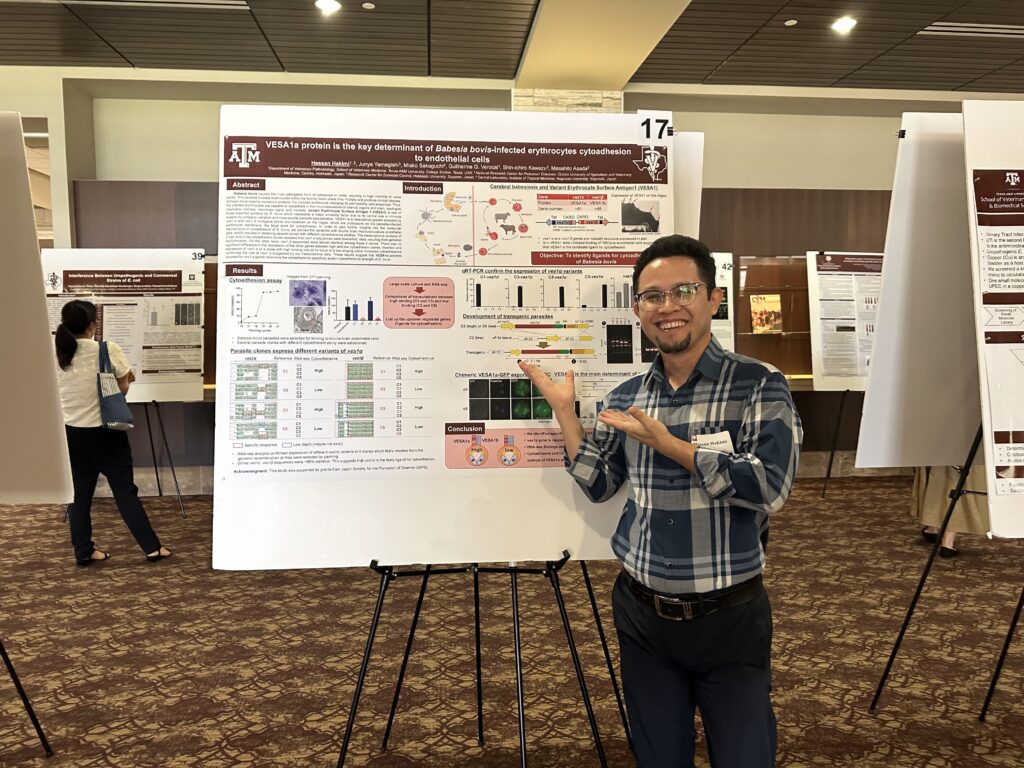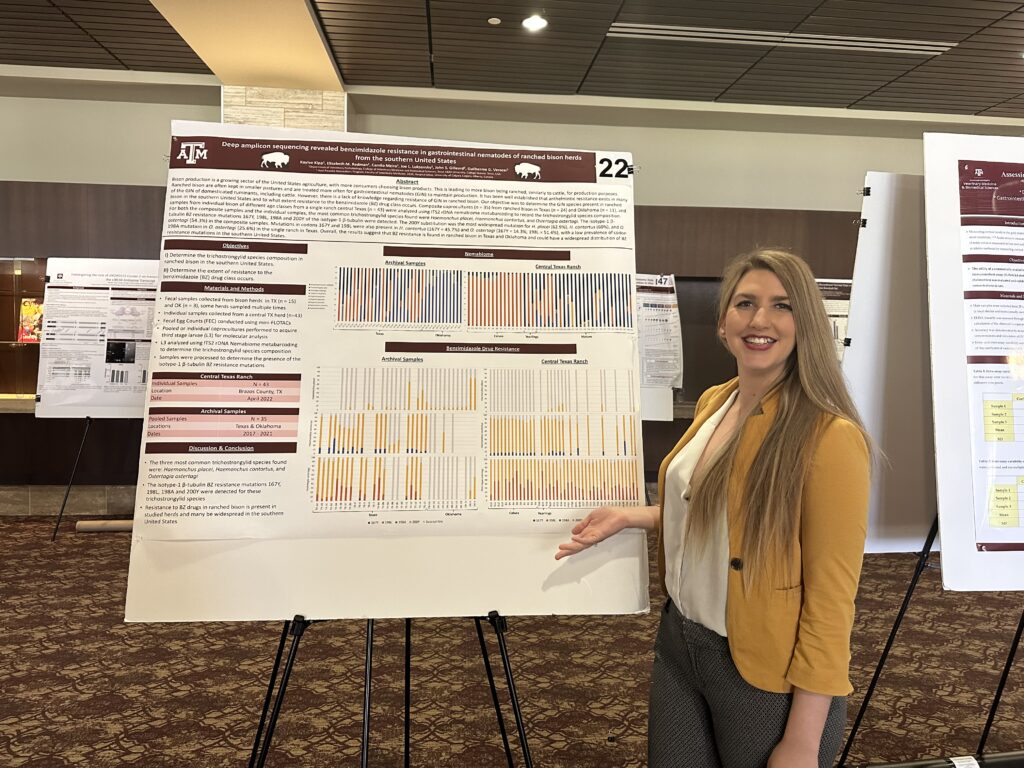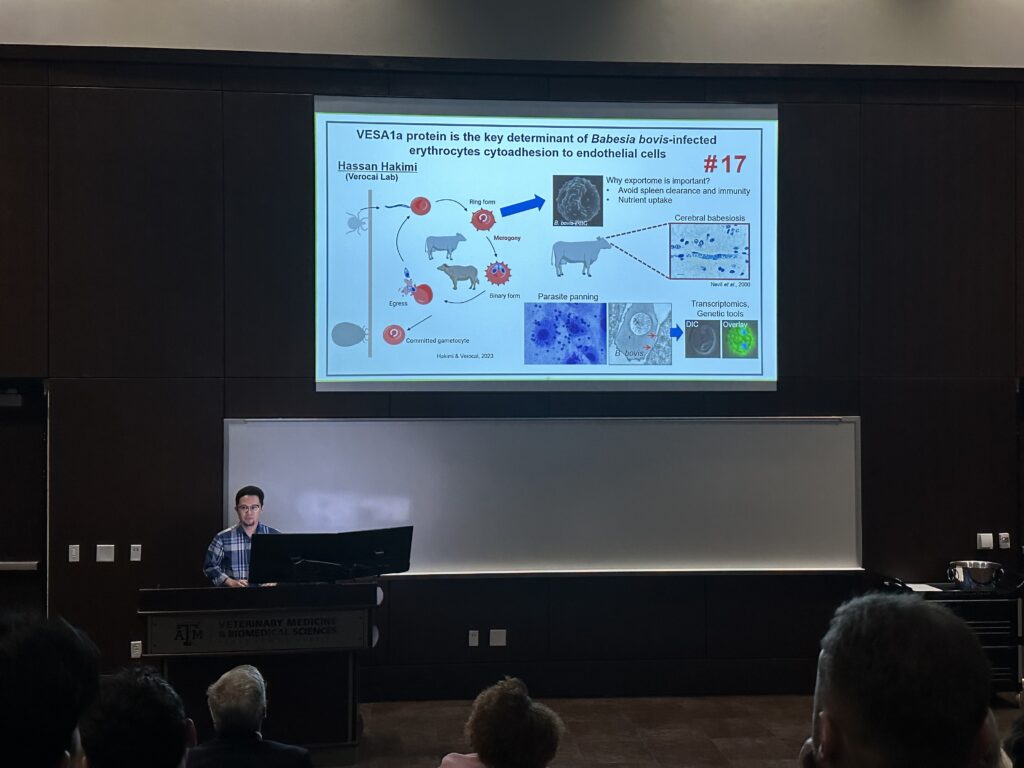Dr. Verocai recently went to Philadelphia as an invited speaker of the One Health in Action (OHiA) initiative at University of Pennsylvania School of Veterinary Medicine (PennVet). The hosts were a Verocai Lab alumni, former NCVP resident and postdoc, Dr. Caroline Sobotyk, who is now the Assistant Professor of Clinical Parasitology at PennVet, and Dr. Stephen Cole, Assistant Professor of Clinical Microbiology. This two-day visit had a packed itinerary including a trip to the New Bolton Center (NBC) located in Kennett Square. There, Dr. Verocai gave a seminar titled “Helminth parasites of North American ungulates: from biodiversity to drug resistance” directed to wildlife- and large animal-oriented faculty. The seminar shared results from Verocai Lab projects focusing on parasites of the North American Bison. This included gastrointestinal nematodes and resistance to benzimidazole anthelmintics led by Kaylee Kipp (PhD Student) and our findings on a previously uncharacterized species of the lungworm genus Dictyocaulus, led by Hannah Danks (4th year vet student), who started working in the lab as a 1st year vet student apart of VMSRTP and continued to be involved for many semesters after. In addition, Dr. Verocai had the opportunity to meet with various OHiA faculty members, those involved with the Wildlife Futures Program, and tour through the Large Animal Hospital and PADLS, the Pennsylvania Animal Diagnostic Laboratory System. Back in Solar Eclipsed(!) Philly, Dr. Verocai met with Dr. Jenni Punt, Professor and Associate Dean of One Health, and participated in a Panel Discussion on “Zoonotic parasitic diseases and the impact of globalization and climate change on parasite transmissions” with vet student members of the One Health Club and the Parasitology Club.
The second day included a breakfast with vet students, a tour of PennVet’s Matthew J. Ryan Veterinary Hospital and the Microbiology/Parasitology Diagnostic Laboratories, and meeting with renowned researchers in Parasitology. To close this fruitful visit, Dr. Verocai delivered another seminar – “Zoonotic Helminths in Action in the US and Abroad”. This One Health-focused presentation highlighted our contributions to the knowledge on a few zoonotic helminths emerging in the US. Among these are our findings on the Onchocerca lupi led by Maureen Kelly (PhD Student), the eye-worm Thelazia callipaeda, and the rat lungworm, Angiostrongylus cantonensis, which are the result of collaborative projects with different academic institutions. The second part of the seminar emphasized our involvement and contributions to the Guinea Worm Eradication Program, funded by The Carter Center, in which we focus on the discovery of diagnostic biomarkers and optimizing diagnostic tools for detection of Dracunculus medinensis infection in animal hosts. Much of our successes come from the outstanding work of Dr. Hassan Hakimi (postdoc) and the joint effort of the entire lab, including past and current members.
One Health, One Parasitology…
